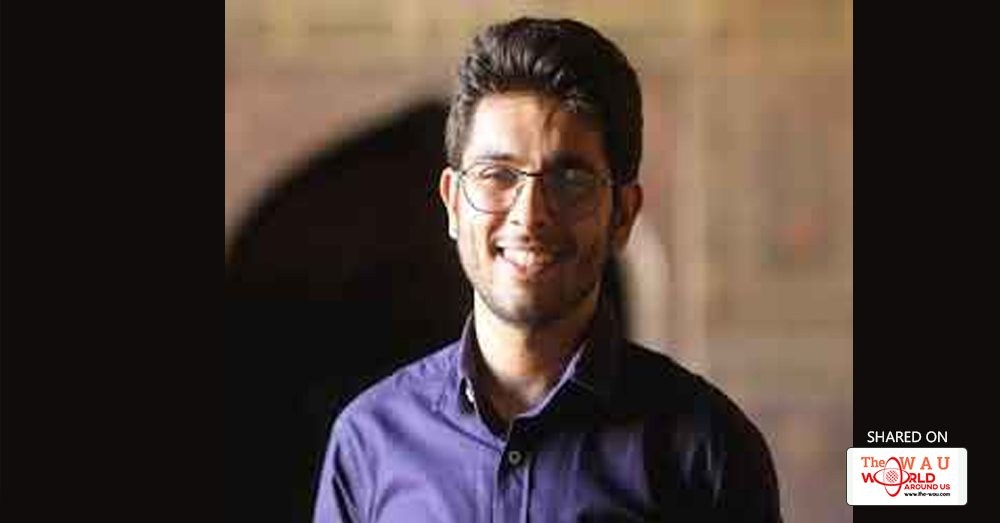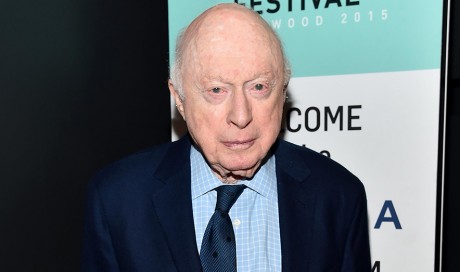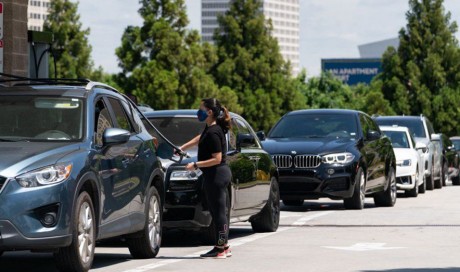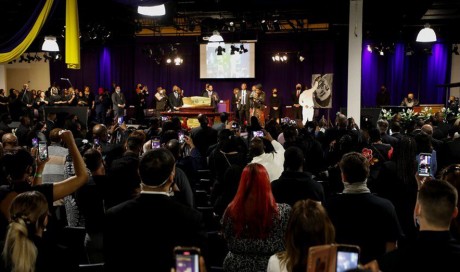A Fulbright scholar at the University of Chicago went home to visit his parents in Pakistan for the winter holidays. In an interview with The Independent, he describes how he tried to go back and resume his studies but was told he was no longer welcome
For Zia Shah, being awarded a Fulbright scholarship to study at the University of Chicago was a dream come true. But having given up his job educating Pakistani schoolchildren about religious tolerance, and after just one term of studies in the US, that dream was snatched away.
Zia was enrolled at Chicago at the start of this academic year, and returned home to visit his proud parents during the winter holidays. On 4 January, he made his way to the airport in his home town of Karachi, only to find he’d been prohibited from flying back to the United States to continue his course.
Airport staff said they had received a “confidential email” from the US which blocked him from returning to continue his religious studies degree – which was being sponsored by the American government.
“At that moment I was in disbelief,” Shah tells The Independent. “I thought all my efforts had gone to waste, and everything was falling apart. This couldn’t be real.”
Shah is not the type of person you expect to see on a watch list: a 25-year-old student with ambitions of teaching children about the peacefulness of divinity.
In 2014 he was given funding from the United States Agency for International Development (Usaid) to set up Ravvish, a social enterprise that runs workshops for young students on different faiths and beliefs.
“I found my own understanding of other religions and cultures became more tolerant when I actually spoke to other people,” he says.
“Our work is aimed at enabling human connections so negative stereotypes can be addressed and peace can prevail between Pakistan and and other countries – like our neighbours India.”
A Muslim himself, Shah was compelled to establish Ravvish to combat the faith-driven turmoil that continues to engulf his country.
From historic tensions with India, to the threats of the radical Taliban, and widespread attacks on Shia Muslims – which saw his own uncle shot and killed in 2010 – Shah saw that something needed to be done. And so he set out to tackle the problem at a grass-roots level.
Muslim-American CEO uses burner devices to avoid intensive searches
'I am proud to be a Muslim': Bella Hadid opens up about her faith
Muslim teenager repeats #Blacklivesmatter on Stanford application
Muslim immigrant joins race to become California lieutenant governor
“It was an amazing feeling, to have an idea you’ve always wanted to do and suddenly people were helping you out and making some impact. It’s the best thing I’ve ever done.”
In order to develop his organisation further – now 30-people strong and building their own international partnerships – in 2015 Shah applied for a scholarship with the US-funded Fulbright programme.
He was then accepted to study at the University of Chicago on an Islamic Studies course, which he says was a huge step, but also one off the beaten track for a Pakistani.
“All the people I looked up to were now my tutors,” he says. “It was like a dream come true. And I did everything against the mainstream. You just don’t see Pakistani students studying at a divinity school.”
This unexpected travel block was a shock not just to local friends and family. Teachers and fellow students in Chicago said they felt it was unnecessary. Some have already set up a social media campaign, using the hashtag #JusticeForZia.
“Zia is a gem,” says Yousef Casewit, a lecturer who taught Zia in his first semester. “I was looking forward to his participation in my classes this quarter.”
“He developed educational curricula to promote religious peace. The irony of being denied entry into the USA is flabbergasting.”
Though Shah was horrified to be turned away from the airport check-in desk on his return, he was also stopped at US customs when travelling back to Pakistan at the very beginning of the same holiday.
“I’d only imagined this happened in the movies,” he says. “We’ve all heard stories of people being detained for no reason.”
He says he had a hunch that something didn’t seem right, despite the officers being friendly and inquisitive in their approach, and claiming they were “only doing cultural outreach”.
After three months, Shah still has had no explanation as to why he’s been forbidden from returning to complete his course in Chicago.
Numerous trips to the US embassy in Karachi have proved unsuccessful. Staff here gave him hope of a swift answer, but even after handing over his passport and reapplying for the same visa, there has been no breakthrough.
Despite the notoriety of an immigration ban sought by the Trump administration – the proposals for which have included seven Muslim-majority countries – this all occurred during Obama’s time in office.
If there is one positive thing to come out of this situation, Shah wishes that US border and customs would “do their research” before choosing who to block.
Zia Shah (left) conducts a Ravvish workshop with a contributor
“Everyone wants their country to be safe, and everyone has the right to ensure the safety of their citizens,” he says.
“But I feel like they need to be more informed about people they’re stopping. I just feel like they don’t know me at all. If they had known me a little, they probably wouldn’t have stopped me.”
Shah says he is urging his Pakistani friends in the US not to think about returning home now until they’ve finished their degree, out of fear they may face similar complications.
Despite the lack of cooperation from the US government, both the University of Chicago and the Fulbright programme have done what they can to keep options open. If his visa is suddenly approved, Shah still has the option of returning to his studies in September.
Representatives from the university have also written to US authorities in Pakistan in an attempt to get a definitive answer on his status.
“I just feel nobody is looking into the case,” he says. “This is my career. My whole life is on the line, and it’s just a random document that nobody has taken notice of.”
Shah says he now feels both aimless and powerless, as he waits in limbo. When he moved to the US, he left Ravvish in the hands of fellow volunteers in Lahore, across the other side of the country.
Without the funds to return to running the organisation, he is staying with family in Karachi indefinitely. In the meantime, he’s helping out with another project that involves working in schools for children who can’t afford education.
“The most irritating thing for me is that I’d put so much effort into setting out such an unprecedented career path.
“Now I’m questioning myself, you know? Maybe it was better for me to have taken a proper job, and be like every other person. It really hurt my self-esteem.
“I keep waking up and I would just hope I was waking up in Chicago instead of Karachi, and someone would be like ‘oh sorry, that was just a bad dream’. But it’s not going away.”
Share This Post















